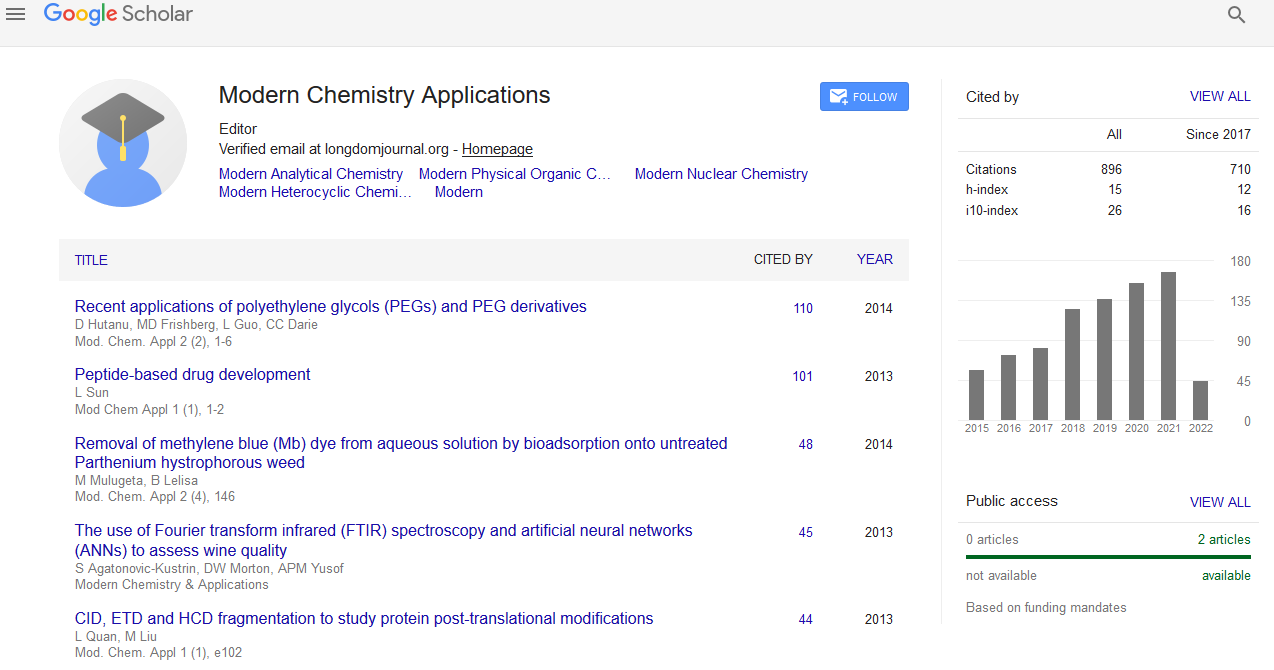Indexed In
- Open J Gate
- JournalTOCs
- RefSeek
- Hamdard University
- EBSCO A-Z
- OCLC- WorldCat
- Scholarsteer
- Publons
- Geneva Foundation for Medical Education and Research
- Google Scholar
Useful Links
Share This Page
Journal Flyer

Open Access Journals
- Agri and Aquaculture
- Biochemistry
- Bioinformatics & Systems Biology
- Business & Management
- Chemistry
- Clinical Sciences
- Engineering
- Food & Nutrition
- General Science
- Genetics & Molecular Biology
- Immunology & Microbiology
- Medical Sciences
- Neuroscience & Psychology
- Nursing & Health Care
- Pharmaceutical Sciences
Abstract
Facile Synthesis of ZnO-Cu2O Composite Nanoparticles and Effect of Cu2O Doping in ZnO on Antimicrobial Activity
Hossein Bayahia, Mohammed Saad Mutlaq Al-Ghamdi, M Shamshi Hassan and Touseef Amna
The comparative antibacterial activity of ZnO and ZnO-Cu2O composite nanoparticles has been investigated and presented in this manuscript. The present study describes the facile synthesis of pristine ZnO nanoparticles and ZnO-Cu2O composite nanoparticles respectively. ZnO nanoparticles and ZnO-Cu2O composite nanoparticles have been synthesized by simple solution process using zinc nitrate hexahydrate and copper acetate as sole precursor. The diameter of each ZnO and ZnO-Cu2O composite nanoparticles lies between 200 to 600 nm respectively as observed from SEM images. Herein, we scrutinized the influence of Cu2O doping in ZnO on the antibacterial activity. The E. coli bacteria which are generally ever-present have been chosen as the model organisms for relative study. The experimental procedures for the antibacterial test include spectroscopic method, taking different concentrations (10–40 μg/ml) of samples to unearth the minimum inhibitory concentration. Our analysis says that the minimum concentration of ZnO and ZnO-Cu2O composite nanoparticles which inhibited the growth of E. coli bacteria was found to be 10 μg. A mechanism was also proposed to describe the better antibacterial activity of the ZnO-Cu2O composite nanoparticles than the pure ZnO nanoparticles.


